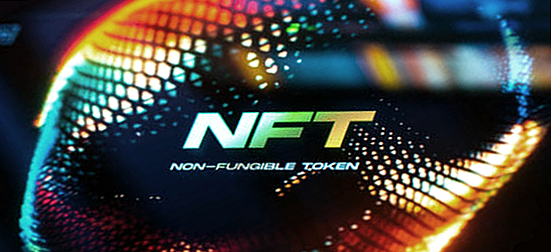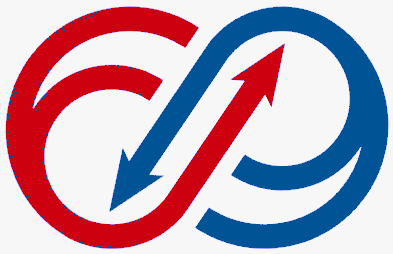Accredited InvestorsAltcoinAnatoli UnitskyAnti-Money Laundering (AML) In CryptoAPIArbitrageArtCoin TokenArticle DirectoryASICAuction Terminology GlossaryBasics of Stock Market InvestingBear MarketBest Crypto Payment Provider In the WorldBitcoinBlockchainBlockchain ConfirmationBlockchain Consensus MechanismBlockchain ForkBlockchain GlossaryBored Ape Yacht ClubBuild a Business That OutperformsBull MarketBuying SkyWay SharesByzantine Fault Tolerance (BFT) ExplainedCasascius CoinCentral Bank Digital Currency (CBDC)Centralized Crypto ExchangeCoinCoinsetCold WalletCollateralCommodity Futures Trading Commission (CFTC)Cross-Chain TechnologyCRUCrypto ExchangeCrypto GlossaryCrypto JokesCrypto Terms to KnowCrypto TickerCryptocurrencyCryptographyCryptojackingCryptounit BlockchainCryptounit GlossaryCryptounit ProgramdApp (Decentralized Application)Dead CoinDecentralized Exchange (DEX)Decentralized Finance (DeFi)Difference Between Bitcoin and EthereumDifferent Ways of Investing MoneyDigital CurrencyDistributed LedgerDo Your Own Research (DYOR)Dollar Cost Averaging (DCA)Dow Jones Industrial Average (DJIA)EncryptionERC-20ERC-721EthereumEvoScentFear Of Missing Out (FOMO)Fear, Uncertainty and Doubt (FUD)Fiat MoneyFNT Fintech CompanyGenesis BlockGlobal Unit PayGlossary of Banking TermsGlossary of Business TermsGlossary of Financial TermsHalvingHODLHot WalletHow Do I Start InvestingHow Rich is Satoshi Nakamoto?How to Create a BlockchainHow to Find Private InvestorsHow to Get Into FintechHow to Program Smart ContractsI Am Thrilled to Be a Part of This Global ProjectInitial Coin Offering (ICO)Initial Public Offering (IPO)Initial Token Offering (ITO)Innovation Basalt TechnologyInnovative Transportation TechnologiesInternational Bank Account Number (IBAN)Investing in Gold Mining StocksInvesting in Gold MiningJagerJoy of Missing Out (JOMO)Know Your Customer (KYC)LedgerLiquidity in CryptocurrencyMaker and Taker Fees in Crypto TradingMarket Capitalization (Market Cap)Meme CoinMetal Credit CardMetaMaskMillenials Now Have Access to Generational WealthMy Best Investment EverNew Digital EvolutionNFT GlossaryOff-Chain TransactionsOn-Chain TransactionsOpen Edition NFTPeer-to-Peer (P2P)Personal Loan GlossaryProbably the Best STO on the MarketProof of Stake (PoS)Real Estate Glossary of TermsReal Estate Investing GlossaryRebase TokenSecurities and Exchange Commission (SEC)Security Token ExchangesSecurity Token Offering (STO)Soulbound Decentralized Identities for Security TokensSoulbound ID Launch by Stobox Proves a SuccessSoulbound TokensStoboxStock Market GlossaryTestimonialsTether Platform and Token (USDT)UnitEx ExchangeUnitsky String TechnologiesUNTBUSDUValidatorWe Started Investing When We Were 25What are Blue Chip NFT?What are Blue Chip Stocks?What are Crypto Assets?What are Crypto Smart Contracts?What are CryptoPunks NFT?What are Digital Assets?What are Digital Collectibles?What are Gas Fees?What are Gas Wars?What are Hashmasks?What are Non Fungible Tokens?What are Non-Sufficient Funds (NSF)?What are Soulbound Tokens (SBT)?What are Stablecoins in Crypto?What are Transactions Per Second (TPS)?What are Utility NFTs?What are Utility Tokens?What Does Burning Crypto Mean?What Does Diamond Hands Mean?What Does Paper Hands Mean?What Does To The Moon Mean?What Does WAGMI Mean?What Happened to Satoshi Nakamoto?What is a 51% Attack?What is a Baby Boomer?What is a Backlink?What is a Banner?What is a Barcode?What is a Bid-Ask Spread in Crypto?What is a Block in Blockchain?What is a Block Reward?What is a Blockchain Address?What is a Blockchain Node?What is a Blockchain Oracle?What is a Blog?What is a Bond?What is a Bot?What is a Broker?What is a Business Accelerator?What is a Cash Cow?What is a Commercial Bank?What is a Commodity?What is a Con?What is a Credit?What is a Credit Limit?What is a Credit Rating?What is a Crypto Airdrop?What is a Crypto Bridge?What is a Crypto Scam?What is a Crypto Token?What is a Crypto Wallet?What is a Crypto Whale?What is a Crypto Winter?What is a Cryptocurrency Public Ledger?What is a Cryptocurrency Roadmap?What is a DAO?What is a Dark Pool?What is a Day Trader?What is a Dead Cat Bounce?What is a Default?What is a Derivative?What is a Digital Credit Card?What is a Fiscal Quarter?What is a Fungible Token?What is a Governance Token?What is a Grace Period?What is a Hard Fork?What is a Hot Wallet?What is a Hybrid Blockchain?What is a Hybrid PoW/PoS?What is a Joint Account?What is a Market Cap?What is a Merkle Tree in Blockchain?What is a Mining Farm?What is a Nonce? What is a PFP NFT?What is a POS System?What is a Prepaid Card?What is a Private Blockchain?What is a Private Key?What is a Public Blockchain?What is a Public Key?What is a Reserve Currency?What is a Ring Signature?What is a Routing Number?What is a Rug Pull in Crypto?What is a Safe Deposit Box?What is a Satoshi?What is a Security Token?What is a Seed Phrase?What is a Shitcoin?What is a Sidechain?What is a Soft Fork?What is a Spot Market?What is a State Bank?What is a SWIFT Code?What is a Tax Identification Number (TIN)?What is a Time Deposit?What is a Transaction Account?What is a Variable Interest Rate?What is a Virtual Assistant (VA)?What is a Virtual Card?What is a Virtual Currency?What is a Visa Card?What is a Whitelist in Crypto?What is a Whitepaper?What is Accounts Payable (AP)?What is AMA in Crypto?What is Amortization?What is an Accrual?What is an ACH Transfer?What is an Actuary?What is an Addendum?What is an Algorithm?What is an Angel Investor?What is an Annuity?What is an Asset?What is an ATM?What is an Atomic Swap?What is an Audit?What is an Avatar?What is an EIN?What is an Embargo?What is an Entrepreneur?What is an IDO (Initial Dex Offering)?What is an Interest Rate?What is an Internet cookie?What is an Investment Bank?What is an NFT Drop?What is an NFT Floor Price?What is an Ommer Block?What is an Orphan Block?What is an Outstanding Check?What is an Overdraft?What is Artificial Intelligence (AI)?What is B2B (Business-to-Business)?What is B2G (Business-to-Government)?What is Bartering?What is Bitcoin Dominance?What is Bitcoin Pizza Day?What is Blockchain Immutability?What is Blockchain Used For?What is BRICS?What is Business-to-Consumer (B2C)?What is C2C (Customer to Customer)?What is Capitalism?What is Catfishing?What is CFD Trading?What is Check Kiting?What is Cloud Mining?What is Communism?What is Content Marketing?What is Decentralization in Blockchain?What is DeFi in Crypto?What is Delisting?What is Depreciation?What is Digital Marketing?What is Diversification?What is Double Spending?What is Dumb Money?What is Dumping?What is Earnings Per Share (EPS)?What is Economics?What is Email Marketing?What is Equity?What is Etherscan?What is Fintech?What is Foreign currency?What is Forex?What is Fundamental Analysis (FA)?What is GameFi?What is Generative Art NFT?What is Gwei?What is Hard Currency?What is Hash Rate?What is Hashing in Blockchain?What is Inflation?What is Initial Game Offering (IGO)?What is Interest?What is Interest Income?What is Mainnet?What is Mastercard?What is Metaverse in Crypto?What is Mining in Cryptocurrency?What is Minting NFT?What is Mobile Banking?What is Money Laundering?What is NFT Alpha?What is NFT Metadata?What is NFT Rarity?What is NGMI Meaning?What is Nominal Interest Rate?What is Online Banking?What is Open-End Credit?What is OpenSea NFT Marketplace?What is Personal Identification Number (PIN)?What is Play-to-Earn?What is Polygon?What is Proof of Authority (PoA)?What is Proof of Work (PoW)?What is Public Key Cryptography?What is Pump and Dump?What is Quantum Computing?What is Refinancing?What is Retail Banking?What is Ripple?What is Sharding?What is Slippage in Crypto?What is Smart Money?What is Solvency?What is Soulbound ID?What is SSL?What is Staking in Cryptocurrency?What is Technical Analysis (TA)?What is Testnet?What is the Ask Price?What is the Better Business Bureau (BBB)?What is the Bid Price?What is the Dark Web?What is the InterPlanetary File System (IPFS)?What is the Gold Standard?What is the Lightning Network?What is the Prime Rate?What is the Sandbox?What is the Secondary Market?What is the World Bank?What is Tier 1 Capital?What is Tokenomics?What is TRC-20?What is Universal Banking?What is Unspent Transaction Output (UTXO)?What is Usury?What is Volatility in Crypto?What is Wash Trading?What is Web3?What is Whisper?What is XRP?What is Zero-Knowledge Proof (ZKP)?Who is Beeple?Who is Satoshi Nakamoto?Who is Vitalik Buterin?Why Tokenization is a Safe HavenWhy You Should Try Your Hand at Trading
What are Non Fungible Tokens (NFTs)?
- Home
- Cryptounit Glossary
- What are Non Fungible Tokens (NFTs)?
Consider purchasing an asset and receiving a digital token proving your ownership. Wouldn't that be great? With Non Fungible Tokens you can.

What are Non Fungible Tokens?
Non fungible tokens (NFTs) are cryptographic tokens that represent a unique digital or physical asset. Within a blockchain network, they serve as verifiable proofs of ownership.
They cannot be exchanged at parity, unlike cryptocurrencies. In contrast, fungible tokens, such as cryptocurrencies, are identical to one another and can thus be used as a medium of exchange in commercial transactions.
The property of an asset whose individual units are interchangeable and practically indistinguishable from one another is referred to as fungibility. All fiat currencies, for example, are fungible. Each individual unit must be interchangeable with any other equivalent individual unit in order to function as a medium of exchange. A one-dollar bill can be exchanged for another one-dollar bill.
NFTs offer a variety of uses. They are, for example, an excellent vehicle for digitally representing actual assets such as real estate and artwork. Because they are based on blockchains, they can also be used to eliminate intermediaries and connect artists with audiences, as well as for identity management. NFTs have the potential to eliminate intermediaries, streamline transactions, and create new markets.
Decentralized applications (DApps) can use NFTs to enable the creation and ownership of one-of-a-kind digital products and collectibles. While NFTs can be sold in open markets, it's important to note that the value of each is unique.
How Do Non Fungible Tokens Work?
NFTs are created by a process known as minting, in which the NFT's information is published on a blockchain. At a high level, the minting process involves the creation of a new block, the validation of the NFT's information by a validator, and the recording of the information. This minting procedure frequently includes the incorporation of smart contracts that assign ownership and control the NFT's transferability.
Tokens are generated with an unique identifier that is directly connected to a blockchain address. Each token has an owner, and the owner's information is public. Even if 10,000 NFTs of the same item are minted, each ticket has an unique identifier and can be differentiated from the others.
The standardization of NFTs enables greater interoperability, which means that unique assets can be easily transferred between applications.
NFTs have the potential to be a fundamental component of a new blockchain-based digital economy. They could be applied in a variety of fields, including digital identification, licensing, certificates, and they could even allow for fractional ownership of items. Storing ownership and identifying data on the blockchain would improve data integrity and privacy while also reducing friction in trade and the global economy.
Benefits
Non fungible tokens are an evolution of cryptocurrency's very straightforward concept. Modern financial systems are made up of complex trading and loan systems for many asset kinds, such as real estate, lending contracts, and artwork. NFTs advance the reinvention of this infrastructure by enabling digital representations of physical assets.
The most evident benefit of NFTs is market efficiency. Converting a physical item to a digital asset simplifies operations and eliminates intermediaries. NFTs that represent digital or physical artwork on a blockchain eliminate the need for agents and allow artists to communicate directly with their audiences. They can also help to improve corporate operations. An NFT for a bottle of olive oil, for example, will make it easier for different actors in a supply chain to track its provenance, production, and sale throughout the entire process.
Non-fungible tokens are also great for managing identities. Consider the example of physical passports, which must be produced at every point of entry and exit. Individual passports can be converted into NFTs, each with its own unique identifying characteristics, allowing countries to expedite entrance and leave procedures. Expanding on this use case, NFTs can also be used for identity management in the digital environment.
Non-fungible tokens, which employ blockchain technology in the same way as cryptocurrency does, are generally safe. NFTs are very difficult to hack due to the distributed nature of blockchains. One security issue associated with NFTs is that you may lose access to your non-fungible token if the platform that hosts the NFT goes out of business.
NFTs are seen as a safe investment alternative. Everyone has access to these tokenized resources. They grant you basic usage rights. Furthermore, most buyers invest in them because they believe the assets will hold their value in the future.
Related Articles

What is a Fungible Token?
This concept is particularly relevant in the context of tokens, both fungible and non-fungible, which are a crucial aspect of the...

NFT Glossary
Are you entering the NFT world and wondering what the heck this new language is all about?

dApp
Decentralized Applications (dApps) are a new type of software application that is rapidly gaining popularity due to its unique features and benefits. Unlike traditional applications, dApps are built on...

Soulbound ID
For this reason Soulbound-tokens are the future of the decentralized internet. They are non-transferable tokens that are linked to a wallet and represent a person's identity using blockchain technology. This can include any...
- Home
- Cryptounit Glossary
- What are Non Fungible Tokens (NFTs)?